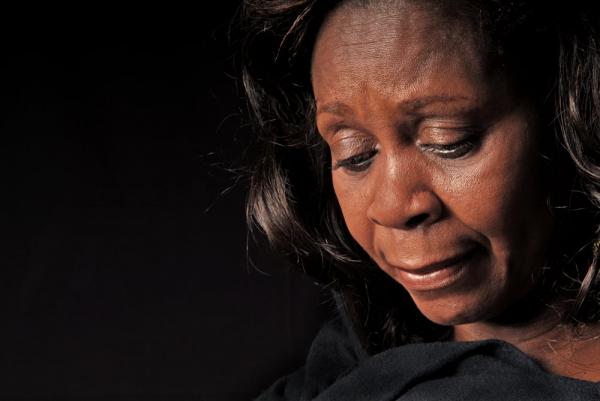
I was getting ready for a speaking engagement when my office called with the news that my grandmother had passed away. I shook my head, denying reality, because I had just seen her the day before. I knew she was alive. I rushed to her house, meeting my family there before even the coroner had arrived. We cried and hugged and cried some more. When they arrived to remove her from the home, I was angry at them even though I knew in my head they were just doing their job. I wondered about what we could have done differently, or if I had gone to her house instead of to work that day, or any number of a thousand scenarios playing in my head trying to distract me from the pain that she was gone. Even when I saw her later at the funeral home, lovely and at peace, it was hard to believe she was gone.
Grief is hard. It is hard because it hurts. It is hard because we sometimes do not know how to grieve. It is hard to maintain a normal "real life"� at the same time. It is hard because the world seems to be no different but also completely changed.
We used to think grief came in stages
Elizabeth Kubler Ross identified the stages of grief as denial, anger, bargaining, depression, and acceptance. Denial is being in shock about what happened. Anger is being angry about any aspect of how your life has changed. Bargaining is making promises or trying to "make a deal"� to undo what happened and get life back the same as before. Depression is the sadness of grief. Acceptance is awareness and fully understanding the ways your life has changed, and continuing to live your life.
Now we know that the first grief research done by Ross was for those who were actually dying themselves, and those people do often follow specific stages. But when we are grieving the loss of someone else, those same stages of grief may come in any order. We may skip stages or go back and repeat stages several times as we grieve.
There is no right way to grieve, but it is important not to get stuck permanently in one stage. It is one thing to be in shock at the news of someone's death, and even a difficult transition to live without their physical presence, but waiting for them to come home every day after many months may be a signal for needing professional help.
Being angry that your loved one is gone, or even at the car or illness that is listed as cause of death, makes sense - but that does not make it OK to be hateful or mean to the people around you. Reviewing the illness or chain of events that caused a death may help your mind process what has happened, but punishing yourself for not being able to go back and do something differently or intervene is not helpful.
Being sad when such a loss happens is normal, even when the sadness is deep and heavy because it is in proportion to the love you have for that person. But when that sadness continues over time, or worsens to impair functioning, it may be time for professional help.
Grieving takes time, and life is never exactly the same after a loss of any kind. We grieve people, changes in relationships, pets, letting go of grown children, graduations, retirements, and any major life changes. Grieving takes you from the moment your life changed to a place of understanding your new life as it will be from now on.
About a year after my grandmother died, I found a picture of her holding my niece in the exact same way as my favorite picture of her holding me. I put them together in a frame, and added a caption that simply said "Grandma's Girls." Now I often think of her when I work in my garden, planting as she taught me and working the weeds and leaves by the wisdom she gave me. When harvest time comes and I make the first autumn bowl of vegetable soup, the scent fills my kitchen and I close my eyes and feel her near.

